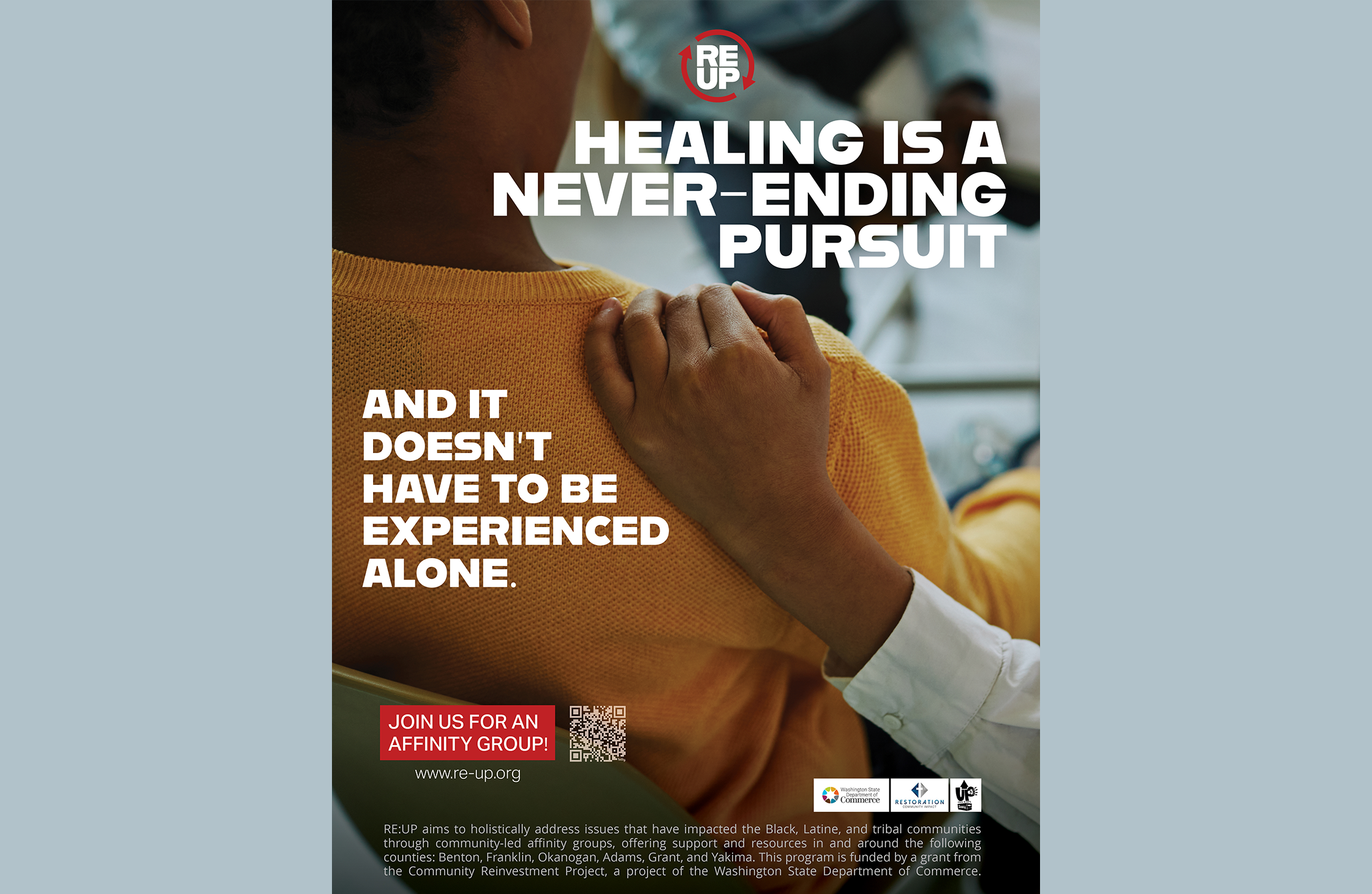RE:UP is a community program brought about through a partnership between Restoration Community Impact and Urban Poets Society to address the impact of systemic racism on Black, Latinx, and Indigenous communities in Washington. The effects of anti-Blackness, colonization, and the war on drugs (which affects BIPOC people disproportionately) have erected barriers to access for these communities. RE:UP’s website says that the program “aims to break down walls and facilitate conversations that foster healing, freedom, and growth.”
The program announced a $400,000 grant from the Washington State Department of Commerce under the Community Reinvestment Project (CRP) at the end of 2024. CRP is a nonprofit that was founded to address community food insecurity, but it has grown over the last few years. CRP’s mission has now expanded to providing comprehensive support, including clothing and shelter, job training, addiction recovery, reentry services, legal assistance, and violence prevention to affected communities.
Daishaundra Loving-Hearne, who heads Urban Poets Society with her husband Bryan, said that the grant is a “really major thing” for them. “This grant is about healing, which is perfect, because that’s Urban Poets Society’s whole passion and center,” said Loving-Hearne. Urban Poets Society has been facilitating Affinity Spaces — defined by the website as “safe, supportive, non-judgmental environments where people with similar identities and lived experiences can come together to engage in open and honest dialogue” — on a smaller scale for a few years. “Now we get to do it in a much bigger capacity,” said Loving-Hearne. “We are going to be able to bring all of the ideas that we've had for years to life in this way.”
From the RE:UP website at www.re-up.org:
With our community-led affinity groups, RE:UP will provide essential support and resources to facilitate personal and intergenerational healing, prevent burnout, and repair the harms caused by these historical and ongoing injustices. We aim to empower community members to rediscover their voices, reclaim their lives, and restore their families, rebuilding without shame or guilt. Our focus is on creating safe spaces where we can walk hand-in-hand together on our healing journey, releasing ourselves from trauma psychologically, behaviorally, and generationally.
Loving-Hearne and her husband Bryan have both talked about their passion for healing before. “Therapy saved my life,” said Loving-Hearne. “But you can't heal if you're in survival mode; you can't heal if you have food insecurity; you can't heal if you're struggling with houselessness; you can’t heal if your kids have to go to school with holes in their clothes. You know what I mean?”
That’s why Loving-Hearne says that the collaboration with Restoration Community Impact (RCI) has been so fruitful. RCI runs the Restoration Market, where anyone in need can come in and shop for free. “They really do have hearts for the community,” said Loving-Hearne. “That’s why it’s such a good collaboration, because we want to provide a 360 degree approach to healing.”
There are four Affinity Groups offered by RE:UP. Each group is tailored for the specific community they are intended to serve. RE:UP leaders ask everyone to be respectful of each group’s purpose: “By attending any of our affinity spaces, you agree to hold space for the very real, very individualized (and sometimes traumatic) experiences of the individuals you are surrounded by. We firmly ask that you respect the space, and the human beings that occupy it.”
Affinity Groups are designed to be safe spaces to talk about mental health, generational traumas, growth, success, and more. “We aim to RE:UP on strength, love, encouragement, and inspiration to drive us to the epitome of self love, self expression, success, and most of all, a culture of healing.”
RE:UP Affinity Groups
EVOLUTION
Specifically for Black, Latine, and Tribal community members (18+)
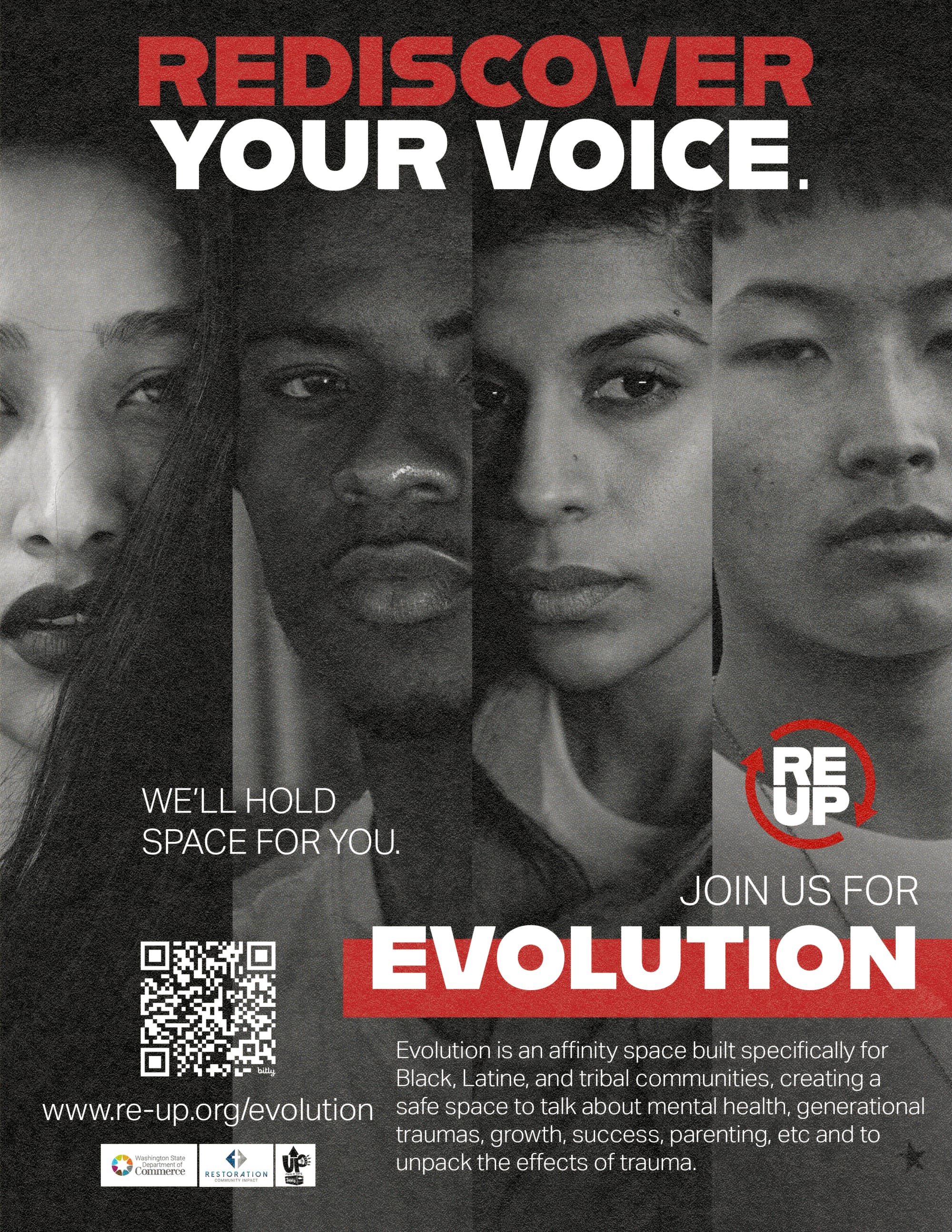
DIVINITY
Specifically for Black women (18+)
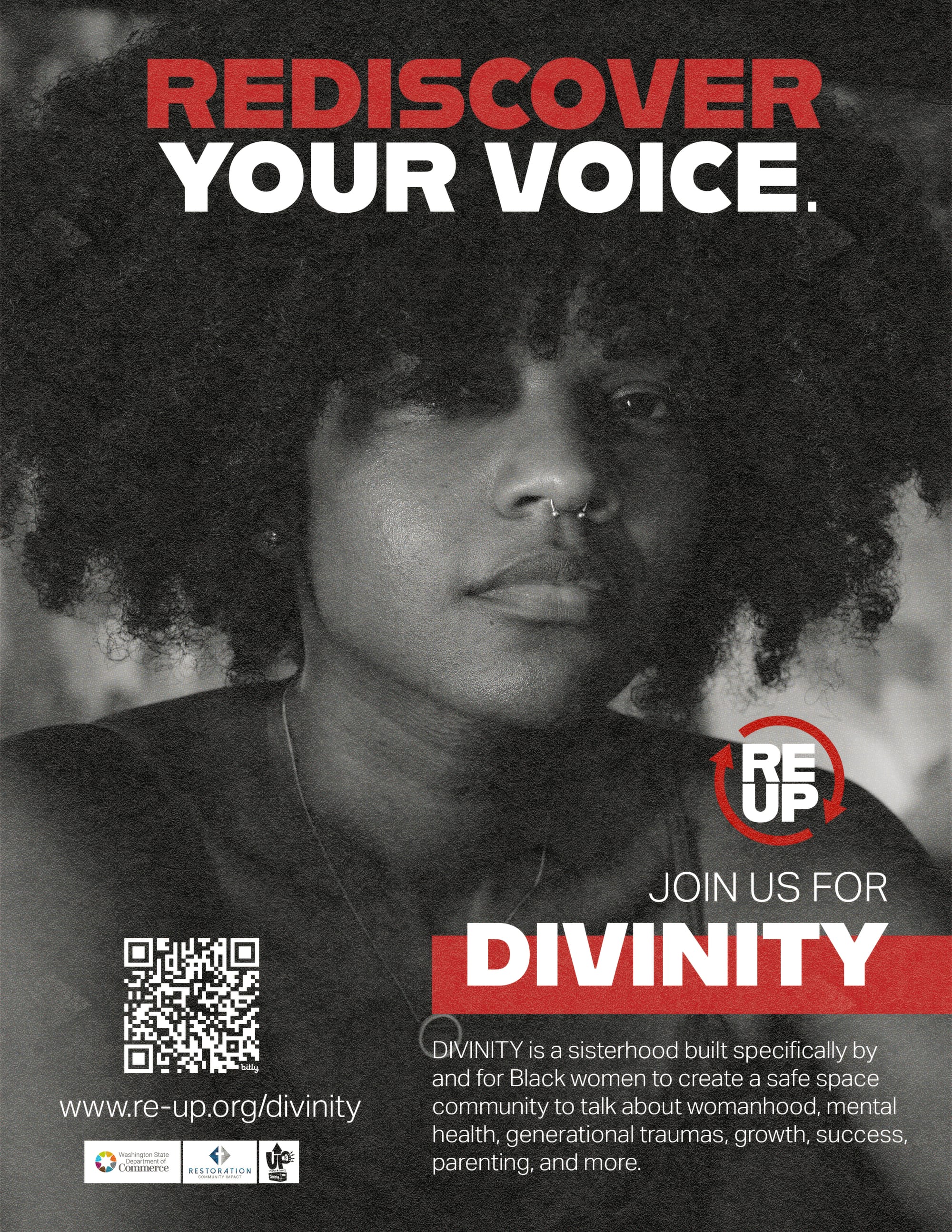
BRUH
Specifically for Black men (18+)
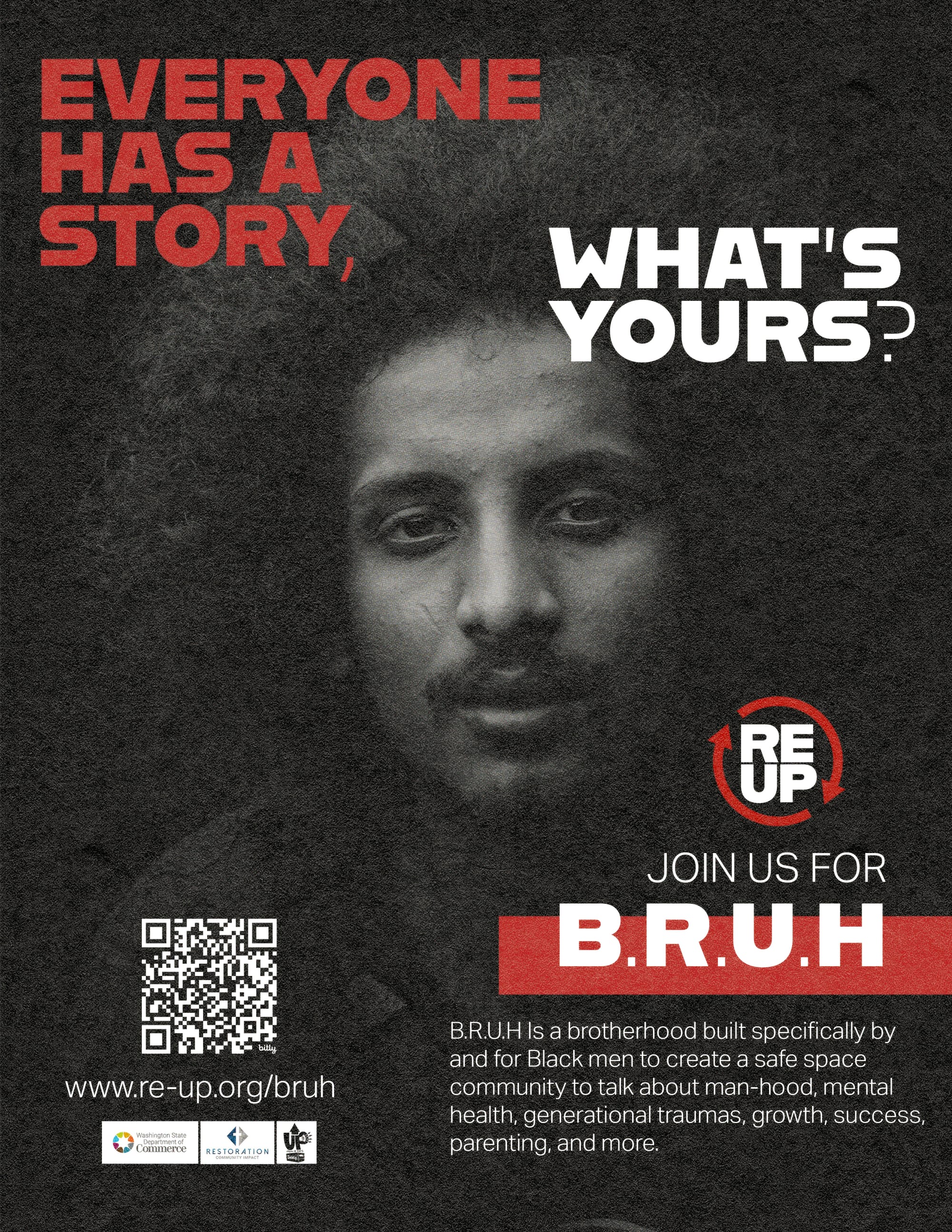
RISE
Specifically for high school youth in the Black, Latine, and Tribal community members
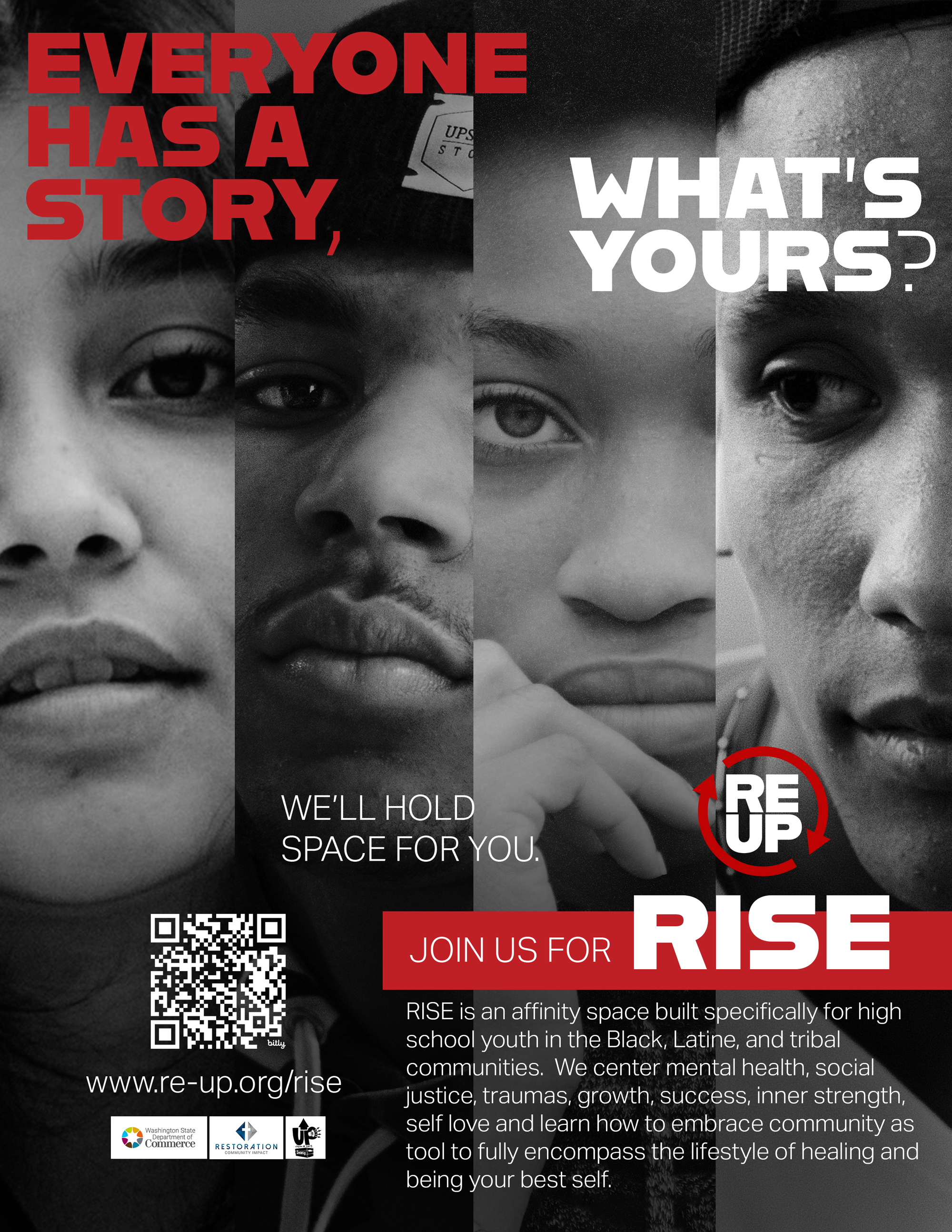
“Our focus is on releasing shame, guilt, and the stigmas surrounding mental health and leaning into the power of vulnerability and belonging,” said Loving-Hearne.
For more information, visit www.re-up.org/affinitygroups
Sara Quinn is the Editor-in-Chief at Tumbleweird and serves on the board of Tri-City Area Gaming. She lives with her amazing spouse (Brendan), and her doggos (Jewel and Ruby). Sara makes art, writes stuff, reads A TON, and plays a lot of video games. 💜

